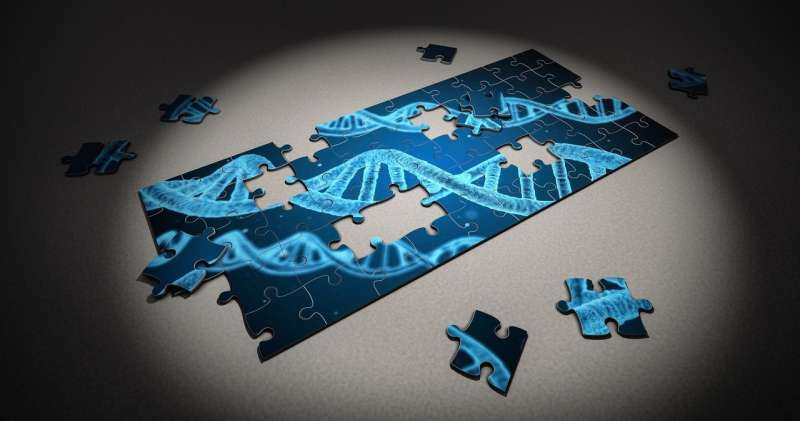New gene variants associated with chronic back pain

Chronic back pain is the number one cause of years lived with disability worldwide. In a new study, Pradeep Suri of the Department of Veterans Affairs in Seattle, Washington, and colleagues in the United States and Europe, in association with Dr. Frances Williams from King's College London's Department of Twin Research and Genetic Epidemiology, identified three novel genetic variants associated with chronic back pain. The study, which was published in the open-access journal PLOS Genetics, links the risk for back pain with variants in genes controlling skeletal development, among other pathways. These findings may help to elucidate the basic biology underlying this common symptom, and point toward avenues for the eventual development of new therapies.
The researchers conducted a genome-wide association study in 158,000 adults of European ancestry, including over 29,000 individuals with chronic back pain, looking for gene variants that were associated with the presence of back pain. The strongest association was with a variant in the SOX5 gene, which is a transcription factor involved in virtually all phases of embryonic development. Inactivation of SOX5 has previously been linked to defects in cartilage and skeleton formation in mice, supporting the hypothesis that the variant discovered in this study may contribute to chronic back pain through its influence on some aspect of skeletal development. The association of the SOX5 variant with chronic back pain was replicated in another group of over 280,000 individuals, including over 50,000 individuals with chronic back pain. A second gene, previously associated with intervertebral disc herniation, was also linked to back pain, as was a third gene that plays a role in spinal cord development, possibly implicating pain sensation or mood in the risk for back pain.
"The results of our genome-wide association study point to multiple pathways that may influence risk for chronic back pain," said Suri. "Chronic back pain is linked to changes in mood, and the role of the central nervous system in the transition from acute to chronic back pain is well-recognized. However, the top two genetic variants we identified suggest causes implicating the peripheral structures, such as the spine. We expect that further large-scale genetic studies will reveal the importance of both peripheral and central contributors to the complex experience of chronic back pain."
More information: Suri P, Palmer MR, Tsepilov YA, Freidin MB, Boer CG, Yau MS, et al. (2018) Genome-wide meta-analysis of 158,000 individuals of European ancestry identifies three loci associated with chronic back pain. PLoS Genet 14(9): e1007601. doi.org/10.1371/journal.pgen.1007601




















